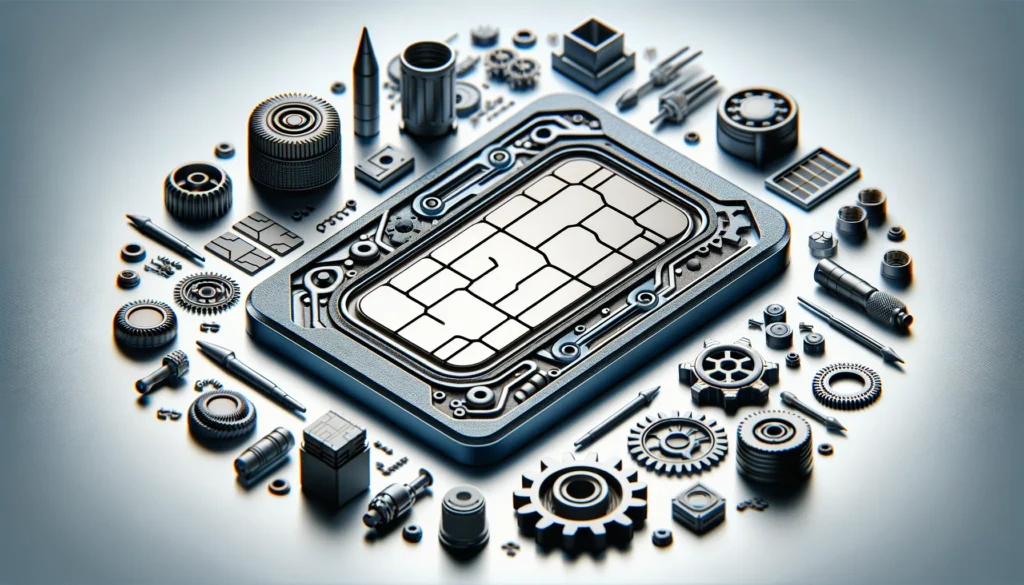In the rapidly evolving world of the Internet of Things (IoT), connectivity is a fundamental aspect that determines the efficiency and reliability of IoT devices. Many IoT devices today connect to a central hub or via Bluetooth, or they rely on the WiFi network of a home or industrial facility. While this setup works for some applications, it has significant limitations, including dependency on a third device for internet connectivity and potential connectivity issues if the hub or WiFi network fails.
This article will explore the benefits of equipping IoT devices with their own SIM cards, enabling them to connect directly to the internet independently. By having their own connectivity, IoT devices can operate more reliably and efficiently, free from the constraints of local network limitations and the need for intermediary devices.

Benefits of SIMs for IoT devices
SIM cards into IoT devices provides numerous advantages that enhance their functionality, reliability, and adaptability. Here are the key benefits of using SIMs in IoT devices:
Durability and Reliability
Resistance to extreme conditions
SIMs designed for IoT devices are built to withstand harsh environments, including extreme temperatures, humidity, and vibrations. This makes them ideal for use in industrial settings where conditions can be unpredictable and demanding. These SIMs have a longer lifespan compared to conventional SIMs, ensuring sustained connectivity over time without frequent replacements.
Continuous Operation
The durability of these SIMs reduces the risk of failures and interruptions, minimizing downtime and maintaining consistent device performance. This reliability is crucial for applications that require continuous monitoring and data transmission.
Global Connectivity and Multi-Carrier Support

Multi-carrier connectivity
Wagtel’s SIMs support multiple carriers, allowing devices to switch seamlessly between networks. This ensures continuous connectivity even if one network experiences issues, providing a robust and reliable connection. With access to a global network of carriers, devices can operate anywhere in the world without connectivity concerns, making these SIMs ideal for applications that require international reach.
Advantages of having multiple carriers available.
By having multiple carriers available, devices can always connect to the best available network, ensuring optimal performance. Multi-carrier solutions also help manage and optimize connectivity costs by selecting the most cost-effective network based on location and usage.
Technology-Agnostic Approach
Support for multiple technologies: 2G, 3G, 4G, NB-IoT
Wagtel’s SIMs are compatible with various network technologies, including 2G, 3G, 4G, and NB-IoT. This versatility allows businesses to choose the most suitable technology for their specific application needs. Being technology-agnostic ensures that devices can easily adapt to emerging technologies without significant hardware changes, protecting investments and extending the lifecycle of IoT deployments.
Benefits of being technology-agnostic for various IoT applications
Businesses can deploy IoT devices across different environments and applications without being restricted to a single network type. As new technologies emerge, Wagtel’s SIMs can seamlessly integrate, allowing for scalable and adaptable IoT solutions.
By equipping IoT devices with SIMs that offer durability, global connectivity, and support for multiple technologies, businesses can ensure that their deployments are reliable, efficient, and future-proof. This approach not only enhances the performance and reliability of IoT devices but also provides the flexibility needed to adapt to changing technological landscapes.
Disadvantages of Having a SIM for each IoT device
While equipping IoT devices with their own SIM cards provides numerous benefits, there are also some disadvantages to consider:
Increased Costs
Each device requires its own SIM card and associated data plan, which can lead to higher overall costs, especially for large-scale deployments. Managing multiple data plans can become expensive and complex.
Complexity in Management
With each device having its own SIM, managing the connectivity of numerous devices can become cumbersome. This includes tracking data usage, monitoring connectivity status, and handling SIM replacements or upgrades.
Potential for Network Congestion
In areas with high device density, having each device connect individually to the network can lead to network congestion, potentially affecting the performance and reliability of the connectivity.
Security Concerns
Each SIM card represents a potential entry point for security breaches. Ensuring the security of each SIM card and the data transmitted through it requires robust security measures and ongoing management.
Despite these challenges, the advantages of using SIMs in IoT devices often outweigh the disadvantages, particularly when using advanced solutions like those offered by Wagtel, which provide multi-carrier support and technology-agnostic connectivity in the same platform.
Carrier Selection Process
Selecting the right carrier for IoT devices is a crucial step in ensuring reliable and efficient connectivity. Here’s a detailed look at the key considerations in this process:
Coverage and Network Quality
Global coverage and signal quality are essential for IoT devices that need to operate across different regions or in remote locations. Strong and consistent signal quality ensures that devices remain connected, minimizing downtime and data loss. This is particularly important for applications like asset tracking, where uninterrupted connectivity is critical. For more detailed insights, check out our guide on choosing the right carrier and technology for IoT devices.
Use Cases Using SIMs for IoT devices
Industrial Applications
IoT devices equipped with SIMs can significantly enhance operations in industrial environments such as manufacturing plants and logistics hubs. In manufacturing, SIM-enabled IoT devices can monitor machinery in real-time, providing data on performance, maintenance needs, and potential failures. This helps in predictive maintenance, reducing downtime, and increasing overall efficiency.
In logistics, SIM-equipped IoT devices can track the location and condition of goods in transit. Real-time data ensures timely deliveries and optimal route planning, improving supply chain management. For instance, temperature-sensitive products can be monitored continuously to ensure they remain within safe parameters, reducing spoilage and waste.
Smart Agriculture

SIM-enabled IoT devices play a crucial role in modernizing agriculture. These devices can monitor soil conditions, weather patterns, and crop health, providing farmers with valuable data to make informed decisions. For example, sensors can measure soil moisture levels and trigger irrigation systems only when necessary, conserving water and optimizing crop growth.
Livestock management also benefits from SIM-equipped IoT devices. Farmers can track the location and health of their animals, ensuring they receive proper care and quickly identifying any issues. This leads to improved animal welfare and increased productivity.
Smart Cities
In smart cities, SIM-enabled IoT devices are used to enhance various aspects of urban living. For traffic management, IoT sensors and cameras monitor traffic flow, detect congestion, and adjust traffic signals in real-time to optimize movement. This reduces traffic jams and lowers emissions, contributing to a cleaner environment.

Public safety is another area where SIM-enabled IoT devices make a significant impact. High-definition surveillance cameras and IoT sensors provide real-time video feeds and data analytics to law enforcement agencies. This helps in crime prevention and faster response times to emergencies. Additionally, smart grids and water management systems benefit from continuous monitoring, leading to efficient resource distribution and reduced waste.
Ready to Launch Your IoT Project? Choose Wagtel!

If you are planning to launch an IoT project, consider Wagtel for your connectivity needs. Our multi-carrier and technology-agnostic SIM solutions provide unparalleled durability, global connectivity, and adaptability to various technologies, including 2G, 3G, 4G, and NB-IoT. Ensure your IoT devices operate reliably and efficiently, no matter where they are deployed.
Contact Wagtel today to learn more about how our solutions can enhance your IoT deployments and drive your project’s success. Let’s connect your future with Wagtel!






